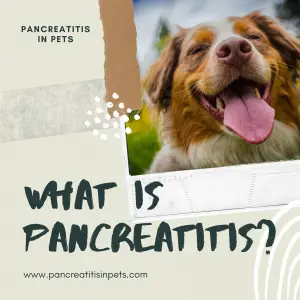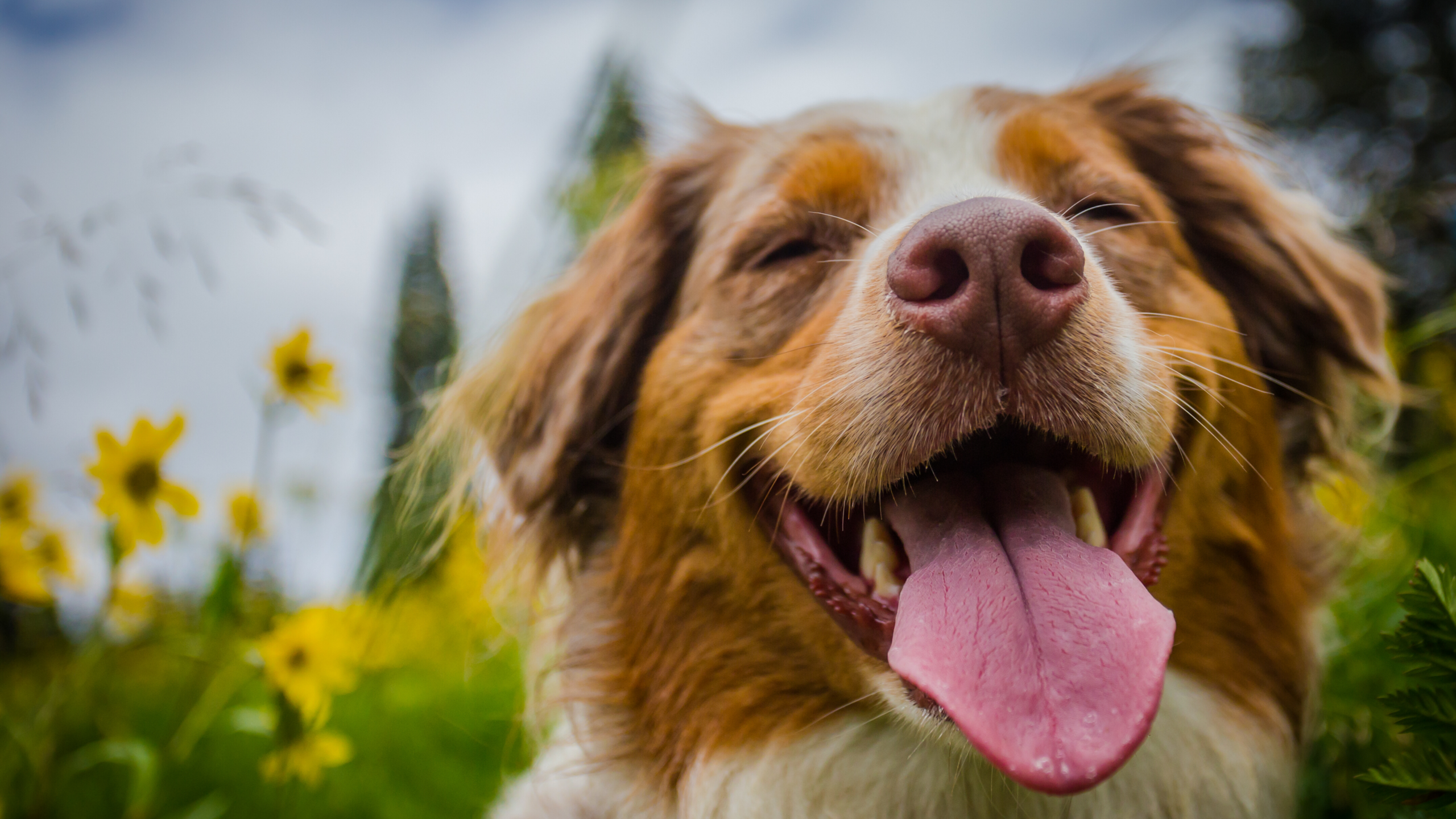
When my little guy was first diagnosed with pancreatitis I was devastated. I knew that in some cases this could mean lifelong management with low-fat diets and other replacements. Pancreatitis in dogs is nothing to be taken lightly.
As a veterinarian, I knew a lot about pancreatitis, but many of my clients were in the dark about what it was and what having the disease meant for their fur baby. When I did have a case, one of the first questions asked was “but what is pancreatitis?”. Below I answer this and some other questions I typically received in practice.

What is the pancreas and what exactly does it do?
The pancreas is a glandular organ that sits near the stomach and small intestine. If you ever took anatomy, you may recall that a gland is an organ that produces and releases substances for specific bodily functions. In the case of the pancreas, it is responsible for secreting digestive enzymes and regulating hormones. They can be broken down like this:
Digestive enzymes (which aid in food break down)
- Lipase – assist with fat digestion
- Proteases (such as trypsin and chymotrypsin) – which aid in digest
- Amylase – which helps to digest sugars (carbohydrates)
Hormones (regulation)
- Insulin – helps to regulate blood sugar levels
- Gastrin – aids with digestion
- Glucagon – works with insulin to balance blood sugar levels
- Somatostatin – helps to control the release of other hormones
Normally, when these enzymes are produced, they are inactive and can travel through ducts to the small intestine where some digestion takes place. However, when the enzymes are released prior to reaching their designated location it can wreak havoc on the body and pancreatitis ensues.
What is pancreatitis in dogs?
Now that you probably know more about the function of the pancreas than you ever wanted to, let’s discuss a little about pancreatitis! Pancreatitis literally means inflammation of the pancreas.
When those digestive enzymes that we discuss previously become active too early in the pancreas and not the small intestines this is called pancreatitis. Now those enzymes are literally digesting the pancreatic tissue and in some cases can spill into the abdomen resulting in damage to other organs including the liver, gall bladder, bile ducts, and intestines.
This often means pain for your pet and resultant swelling of the organ as it eats away at itself.
A few dogs that recover from an acute episode of pancreatitis may continue to have recurrent bouts of the disease, which is then called chronic or relapsing pancreatitis.
What are the symptoms of Pancreatitis?
What to look for in a case of acute (or chronic – I discuss the difference here) pancreatitis varies with each dog. When my own dog developed pancreatitis, he presented with vomiting, diarrhea, lethargy, and a very painful abdomen. He also had a loss of appetite which is extremely unlike my little guy, along with the other symptoms mentioned these are the most common.
The clinical signs of pancreatitis are often variable, as the intensity usually depends on the number of enzymes that were released.
What Causes Pancreatitis?
Well, the main answer to this question is that no one really knows! Unfortunate isn’t it? But fortunately, vets and researchers have been able to narrow down some of the main triggers of pancreatitis episodes. These include:
- High fat diets
- Obesity
- endocrine diseases (like hypothyroidism)
- some medications
- some toxins
Always wonder why your vet is telling you not to feed your dog table food? Pancreatitis is one of the main reasons!

How is Pancreatitis Treated?
Once you’ve gotten your little guy or girl to the vet they will of course start with doing a complete physical examination. This will include TPR, abdomen palpation (which many times is sore), and checking gum color for blood refill also known as CRT or capillary refill time.
Be prepared to have some tests done as your veterinarian will need to officially diagnose your pet with pancreatitis. This will probably include some initial blood work as a CBC Chemistry panel. To quickly rule out pancreatitis, many vet offices now have snap test, cPL, which can be done in-house that check specifically for the disease. If your dog has chronic pancreatitis and you suspect they are having an episode discuss doing a snap test prior to the other blood work, although the CBC Chem will also be necessary to check other organ functions.
In addition, your vet may want to get X-rays if it is a severe case to evaluate the pancreas and other organs visually.
If the pancreatitis is severe and acute, expect a hospital stay of at least a couple of days as your pet will need 24-hour care. This includes intravenous fluids, antiemetics, antibiotics, and pain medications as needed.
How is Pancreatitis Prevented?
Since the cause seems to vary widely, there is no sure-fire way to prevent pancreatitis. But there are things that you can do to possibly lower the chances of your pet getting the disease. These include:
- Maintaining a healthy overall weight
- Avoiding high-fat diets
- Avoiding table foods
- Keeping garbage out of your pets reach
- See your vet annually for regular blood work (I usually recommend at least once a year especially after 10 years of age)
- Discuss all medications with your vet prior to giving them to your pet
Here’s to a happy and long life for your pet if they suffer from pancreatitis! If you have any questions or comments please leave them below!



























































































































Are there any dog treats that are low fat & perfectly safe to give a dog after they’ve had pancreatitis??
Hi Paula, I feed my dog vegetables as snacks from time to time like broccoli and apples (which he loves and doesn’t irritate his chronic pancreatitis), if you want over the counter treats here is an article about the best Petco treats for dogs with pancreatitis
Would like treats for dog with pancreatits